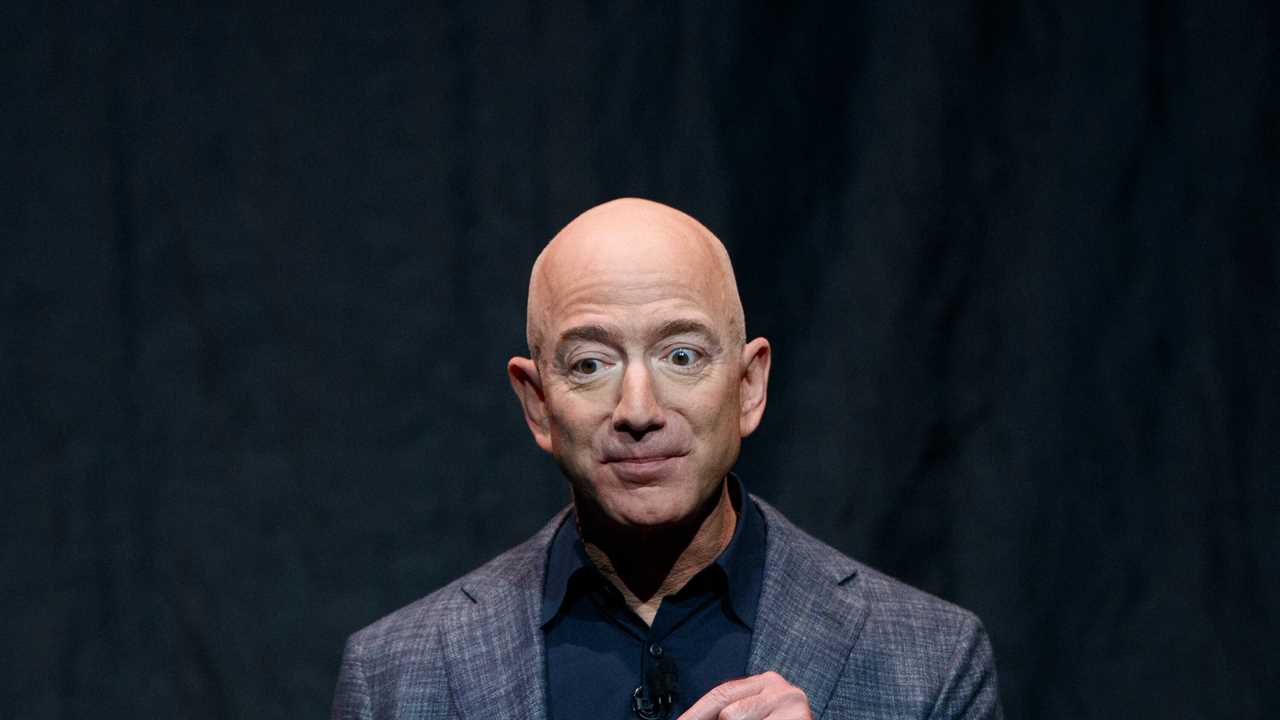
House Democrats’ plans to raise taxes on the rich and on profitable corporations stop well short of the grand proposals many in the party once envisioned to tax the vast fortunes of tycoons like Jeff Bezos and Elon Musk — or even thoroughly close loopholes exploited by high-flying captains of finance.Instead, the House Ways and Means Committee, influenced more by the need to win the votes of moderate Democrats than by progressive Democratic ambitions, focused on traditional ways of raising revenue to pay for the party’s $3.5 trillion social policy bill — by raising tax rates on income.The proposal, which is set to be considered by the panel on Wednesday, does include measures to raise taxes on the rich. Taxable income over $450,000 — or $400,000 for unmarried individuals — would be taxed at 39.6 percent, the top rate before President Donald J. Trump’s 2017 tax cut brought it to 37 percent. The top capital gains rate would rise from 20 percent to 25 percent, a considerably smaller jump than President Biden proposed.A 3-percent surtax would be applied to incomes over $5,000,000.But more notable is what is not included. The richest of the rich earn little money from actual paychecks (Mr. Bezos’s salary from Amazon was $81,840 in 2020). Their vast fortunes in stocks, bonds, real estate and other assets grow each year largely untaxed.The Senate Finance Committee wants to tax that wealth with a one-time surtax imposed on billionaires’ fortunes, followed by levies annually on the gains in value of billionaire assets, the way property taxes are adjusted each year to reflect gains in housing values. The Ways and Means Committee shrugged that off.Representative Bill Pascrell, Democrat of New Jersey and a Ways and Means Committee member, conceded on Monday that the real wealth in the country is tied up in assets, not large salaries, but he said many Democrats were leery of going too far.“I am very suspect of a wealth tax,” he said. “I think it’s perceived as ‘soak the rich.’ I don’t think it is, but that’s how it’s perceived.”The committee did take aim at a loophole in retirement savings exploited by billionaire Peter Thiel, who, according to a ProPublica investigation, was able to take a Roth individual retirement account worth less than $2,000 in 1999 and grow it to $5 billion, which could be completely shielded from taxation.In a Roth I.R.A., small annual deposits of money from previously taxed income are allowed to gain in value free of capital gains taxation, as long as it the funds are withdrawn after retirement. But Mr. Thiel, the founder of PayPal and a prominent Silicon Valley conservative, opened his Roth, then deposited stakes in start-up companies at fractions of pennies a share, which then exploded when the start-ups took off. The gains in value — and investments made in other companies from those gains — will go completely untaxed if Mr. Thiel waits to withdraw it just before he turns 60.To prevent such exploitation, the Ways and Means Committee would stop contributions to retirement accounts once they reach $10 million.In other areas, the committee appears to be making only glancing blows at the nation’s highest fliers. Barack Obama, Mr. Trump and President Biden have all vowed to close the so-called carried interest loophole, in which private equity managers pay low capital gains tax rates on the fees they charge clients, asserting that it is not income since it is drawn from their clients’ investment gains.Senate Democrats hope to close the loophole completely, saving the Treasury $63 billion over 10 years. The House proposal would force Wall Street financiers to hold their clients’ investment gains for five years before claiming them as capital gains and cashing out, a demand that could limit the use of carried interest, but would save a fraction of the Senate proposal, $14 billion.By: Jonathan Weisman
Title: Courting moderates, House Democrats stop short of proposing the most aggressive plans to tax the rich.
Sourced From: www.nytimes.com/2021/09/13/us/politics/tax-democrats-budget.html
Published Date: Mon, 13 Sep 2021 19:18:57 +0000
Read More
Did you miss our previous article...
https://badpoliticians.com/us-politics/the-pentagon-protects-kabul-from-a-deadly-drone-strike
 UK PoliticsWorld PoliticsVideosPrivacy PolicyTerms And Conditions
UK PoliticsWorld PoliticsVideosPrivacy PolicyTerms And Conditions
